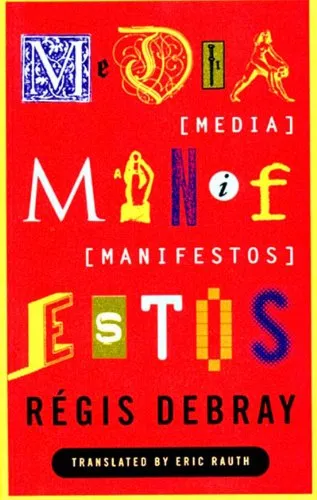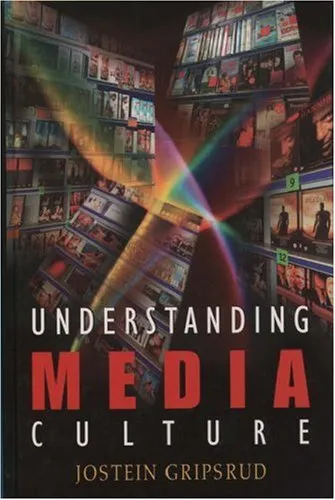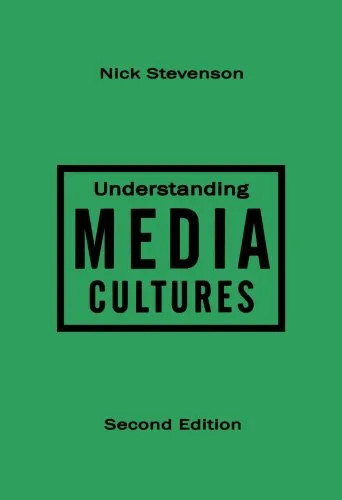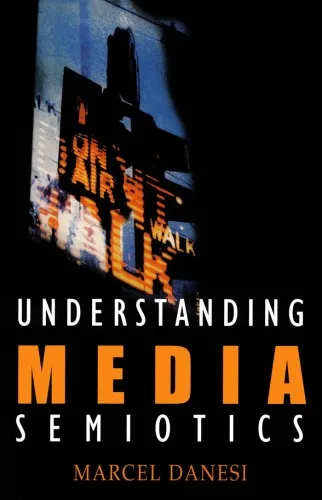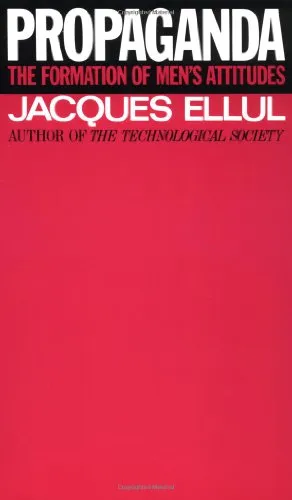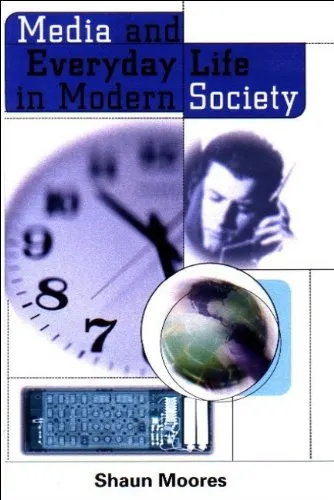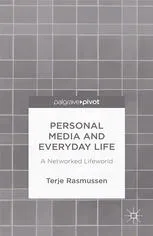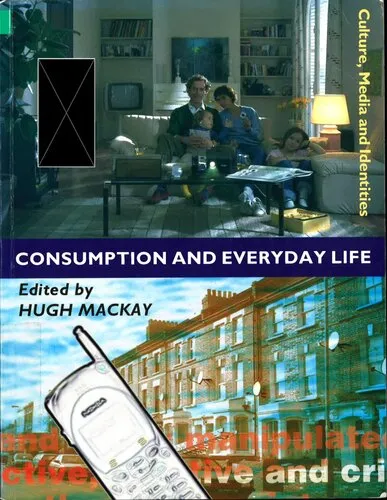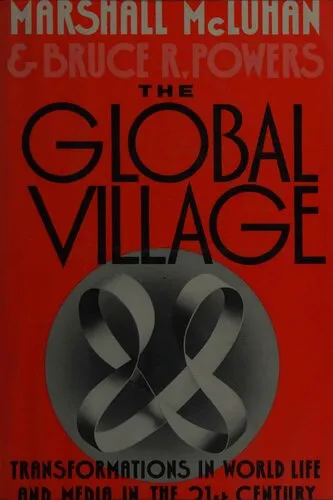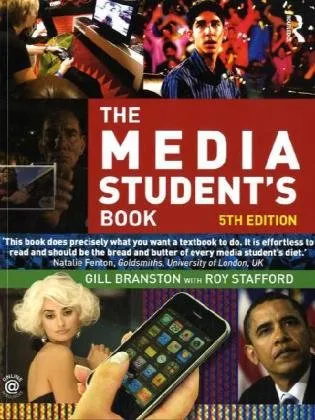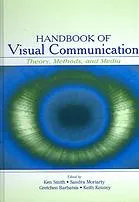Media Manifestos: On the Technological Transmission of Cultural Forms
4.6
بر اساس نظر کاربران

شما میتونید سوالاتتون در باره کتاب رو از هوش مصنوعیش بعد از ورود بپرسید
هر دانلود یا پرسش از هوش مصنوعی 2 امتیاز لازم دارد، برای بدست آوردن امتیاز رایگان، به صفحه ی راهنمای امتیازات سر بزنید و یک سری کار ارزشمند انجام بدینکتاب های مرتبط:
خلاصه تحلیلی کتاب
«Media Manifestos: On the Technological Transmission of Cultural Forms» نوشته من، به بررسی پیوند پیچیده و چندبعدی میان فناوریهای رسانهای و انتقال یا دگرگونی اشکال فرهنگی در طول تاریخ میپردازد. این اثر، نه صرفاً یک متن نظری، بلکه تلاشی است برای ترسیم نقشهای جامع از مسیرهایی که فرهنگ از طریق ابزارهای ارتباطی و رسانهای طی میکند.
کتاب با نگاهی فرای تاریخنگاری ساده، به این پرسش محوری میپردازد که چگونه نوآوریهای تکنولوژیک همچون چاپ، تلگراف، سینما و رسانههای دیجیتال، نه تنها اشکال بیان فرهنگی را تغییر دادهاند، بلکه سازوکارهای دریافت، حفظ و بازتولید آنها را نیز متحول ساختهاند. در این مسیر، مفاهیمی چون «مدیالوژی» بهعنوان دستگاهی برای تحلیل نقش زیرساختها در تولید معنا مطرح میشود.
این تحلیل به خواننده کمک میکند تا رویدادهای فرهنگی را نه تنها بهمثابه حاصل خلاقیت انسانی، بلکه در بستر ساختارهای تکنولوژیک و شبکههای انتقال اطلاعات درک کند. به این ترتیب، کتاب رویکردی ترکیبی از فلسفه، تاریخ و مطالعات رسانهای را به کار میگیرد تا پیوند عمیق میان «فرم» و «وسیله انتقال» را آشکار سازد.
نکات کلیدی و کاربردی
یکی از نکات برجسته کتاب این است که رسانهها تنها کانالهای خنثی نیستند، بلکه بهشکل فعال فرمهای فرهنگی را شکلدهی، اصلاح یا حتی حذف میکنند. این نگاه، دری را به فهم تازهای از مسئولیت فرهنگی باز میکند.
درک رابطه میان رسانه و فرهنگ، به پژوهشگر کمک میکند مسیر تحولات را پیشبینی کند و از این پیشبینی در استراتژیهای توسعه فرهنگی، آموزش یا حتی برنامهریزی رسانهای بهره گیرد. این امر برای مطالعات فرهنگی و نظریه رسانه اهمیت مضاعف دارد.
ورود رسانههای دیجیتال و آنلاین، نمونهای معاصر از تحول سریع در انتقال فرمهای فرهنگی است؛ پدیدهای که بهخوبی نشان میدهد سازوکارهای گذشته چگونه چالش برانگیز میشوند و نیاز به چارچوبهای نظری تازه دارند.
نقلقولهای ماندگار
رسانه تنها آئینه فرهنگ نیست؛ بلکه خود، چارچوبی برای شکلگیری آن است. نامشخص
هر فرم فرهنگی، به همان اندازه که محصول خلاقیت است، بدهکار سازههای تکنولوژیک نیز هست. نامشخص
چرا این کتاب اهمیت دارد
اهمیت «Media Manifestos: On the Technological Transmission of Cultural Forms» در پرداختن به رابطهای است که اغلب نادیده گرفته میشود: سازوکارهای انتقال فرهنگی در پی تغییرات تکنولوژیک. این رویکرد، به خواننده ابزار مفهومی میدهد تا از سطح ظاهر رویدادها فراتر رفته و ساختارهای زیربنایی را درک کند.
برای پژوهشگران نظریه رسانه و مطالعات فرهنگی، کتاب نهتنها منبع الهام، بلکه چارچوبی تحلیلی است که میتواند در پروژههای تحقیقاتی و نقد رسانه بهکار بسته شود. این متن، از یک سو به تاریخ رسانه وفادار است و از سوی دیگر نگاه انتقادی را حفظ میکند.
اطلاعات نامشخص همچون سال انتشار یا دریافت جوایز، احتمالاً به دلیل نبود منبع معتبر در دسترس، در این معرفی ذکر نشده است. با این حال، ارزش تحلیلی کتاب فارغ از این اطلاعات نیز پابرجاست.
نتیجهگیری الهامبخش
در نهایت، «Media Manifestos: On the Technological Transmission of Cultural Forms» پلی میان جهان فناوری و افقهای فرهنگی میسازد. این اثر به ما یادآوری میکند که رسانهها، بیش از آنچه تصور میکنیم، در شکلگیری ادراک، زبان و معنا نقش دارند.
اگر شما یک کتابخوان جدی، پژوهشگر یا حتی علاقهمند به درک عمیق رابطه میان ابزار و محتوا هستید، این کتاب میتواند نقطهی عطفی در دیدگاهتان ایجاد کند.
Analytical Summary
In Media Manifestos: On the Technological Transmission of Cultural Forms, noted thinker Régis Debray confronts the deep mechanisms through which culture travels across time, space, and generations. This authoritative work situates itself at the crossroads of philosophy, media theory, and cultural history, offering readers a keen analysis of how technological developments alter not only the mode of transmission but the substance of what is transmitted.
Debray’s project is ambitious: rather than investigating content alone, he insists on understanding the channels, vehicles, and infrastructures that make the persistence of cultural forms possible. The text dissects how communication technologies, from oral traditions to digital networks, reshape our collective memory, influence political structures, and reconfigure the very vocabulary through which we interpret the world.
This book refuses simple narratives about innovation. Instead, it builds a layered “mediology,” a discipline of transmission, emphasizing that every technological change triggers complex effects on institutions, beliefs, and cultural continuity. It moves beyond media studies into a rich conversation about the hidden logistics of civilization’s knowledge and art.
Key Takeaways
Readers of Media Manifestos: On the Technological Transmission of Cultural Forms emerge with a deepened awareness of how media are not neutral pipes but active shapers of the cultural substance they carry.
You will learn that the story of culture is inseparable from the story of the tools, infrastructures, and systems enabling its mobility. Debray’s analysis bridges theory with tangible historical examples, offering clarity on why media theory must include consideration of the “means of transmission.”
From the printing press to algorithmic feeds, every medium alters the pace, reach, and priorities of cultural discourse. Attentive readers will find frameworks that illuminate current debates on digital preservation, educational reform, and the politics of communication.
Memorable Quotes
“To understand a message, we must first understand the messenger’s route.”Unknown
“Transmission is the invisible architecture of civilization.”Unknown
“Media are not merely channels; they are the ground that shapes the form.”Unknown
Why This Book Matters
Media Manifestos: On the Technological Transmission of Cultural Forms matters because it shifts the focus from what we communicate to how culture is structurally sustained and reshaped over time.
For academics, media theorists, and professionals in communication, it is a foundational text for understanding the relationship between technology and society’s collective knowledge. The book’s interdisciplinary approach makes it valuable for historians, educators, cultural analysts, and policymakers seeking holistic perspectives.
Its project resonates strongly in our era of rapid technological turnover, where digital obsolescence threatens cultural memory. Debray’s insistence that transmission technologies are integral to cultural identity reframes contemporary policy and intellectual discourse.
Inspiring Conclusion
Ultimately, Media Manifestos: On the Technological Transmission of Cultural Forms is an invitation to rethink the foundations of cultural life. It urges us to see that the devices, networks, and channels through which art, knowledge, and values move are as decisive as the content itself.
In a period where communication platforms proliferate and evolve at unprecedented speed, this book offers frameworks for discerning what is at stake when forms travel from one era to another. By reading, discussing, and sharing its insights, you join a critical conversation about the very fabric of our shared heritage.
Take the next step: engage with Debray’s rigorous, thought-provoking arguments, and apply his mediological lens to the cultural phenomena shaping your world today.
دانلود رایگان مستقیم
شما میتونید سوالاتتون در باره کتاب رو از هوش مصنوعیش بعد از ورود بپرسید
دسترسی به کتابها از طریق پلتفرمهای قانونی و کتابخانههای عمومی نه تنها از حقوق نویسندگان و ناشران حمایت میکند، بلکه به پایداری فرهنگ کتابخوانی نیز کمک میرساند. پیش از دانلود، لحظهای به بررسی این گزینهها فکر کنید.
این کتاب رو در پلتفرم های دیگه ببینید
WorldCat به شما کمک میکنه تا کتاب ها رو در کتابخانه های سراسر دنیا پیدا کنید
امتیازها، نظرات تخصصی و صحبت ها درباره کتاب را در Goodreads ببینید
کتابهای کمیاب یا دست دوم را در AbeBooks پیدا کنید و بخرید
1268
بازدید4.6
امتیاز0
نظر98%
رضایتنظرات:
4.6
بر اساس 0 نظر کاربران
Questions & Answers
Ask questions about this book or help others by answering
No questions yet. Be the first to ask!
